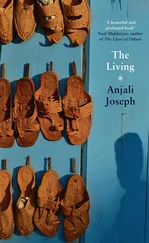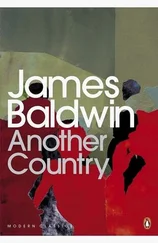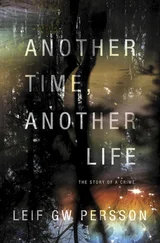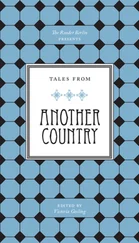Chapter 3 Contents Title Page Another Country ANJALI JOSEPH PARIS Chapter 1 Chapter 2 Chapter 3 Chapter 4 Chapter 5 Chapter 6 Chapter 7 Chapter 8 Chapter 9 Chapter 10 LONDON Chapter 11 Chapter 12 Chapter 13 Chapter 14 Chapter 15 Chapter 16 Chapter 17 Chapter 18 BOMBAY Chapter 19 Chapter 20 Chapter 21 Chapter 22 Chapter 23 Chapter 24 Chapter 25 Chapter 26 Chapter 27 Chapter 28 Chapter 29 Chapter 30 Chapter 31 Acknowledgements ALSO BY ANJALI JOSEPH Copyright About the Publisher
Her bed was a narrow platform under the eaves of the Haussmann building. In it, she felt like the goblin visiting the student in Andersen’s fairy tale. The beams were a foot from her head, and shed wood dust; for the first ten days she wheezed, and woke twice a night shouting, dreaming she was being buried alive. When she went to London for the visa interview, she bought four metres of white cotton in an Indian shop in Wembley. She swaddled the dark beams, and fixed the cloth with drawing pins. The dreams, and the coughing, stopped.
The flat was nineteen metres square, a figure she possessed with as much authority as her own measurements of height or weight. ‘Studios are often twenty metres square. This one is small but it has everything,’ said the landlord, M. Turgis. He was a psychiatrist, a good-looking auburn-haired man with bright blue eyes and a yellow smile; he lived on the fourth floor, where Leela went every month to pay the rent in cash. He would invite her in; the flat was elegantly furnished. For reasons she didn’t understand, M. Turgis (not Dr, but M., he said) told her of his history. His mother was Norwegian. That explained the colouring of his two sons, pretty children of white-blond hair, fair skin, and the same bright blue eyes. The flat on the fourth floor had been in his family for some time; he had, he explained, bought three of the chambres de bonne on the sixth floor when they came up for sale in recent years. Now he rented them out. Leela was lucky, he said: the others had shared bathrooms, but hers was self-contained.
It was an odd shape; rather than being square, it was a parallelogram with a thin arm attached. In the parallelogram was the living room, with a bookshelf, a green plastic television set, a cheap blue carpet, a desk, a folding chair, and a floor cushion. A single, heavy window gave onto the narrow inner courtyard, and looked across at another such window. There was no view but sky, and the other window. Above the bookshelf, below the beams, was the blue-painted sleeping platform, reached by climbing a small wooden ladder. The platform was L-shaped; Leela slept near the ladder, snug against the external wall. On the other side was the slender corridor that ran down the sixth floor’s maids’ rooms. Here, lying in bed in the morning, masturbating serially, falling asleep midway then starting again, trying to work up the energy to begin the day – a period of time that, when she didn’t have an early class, could persist until lunch – she heard the other inhabitants of the sixth floor hurrying out. Most were students; there was a Chinese man in his thirties, a foreign white man, where from she didn’t know, and a young Chinese girl. M. Turgis’ tread, more assured and heavier, theatrically careful, could also be heard from time to time, though she was relieved he didn’t call on her often.
When she got up she would slide down the ladder, a move that became automatic, and go into the cramped white-tiled kitchen area, which held a small stove, a steel sink, a drop-leaf table, two chairs, a mop, and a blue and white kettle that she’d bought at the Monoprix on the boulevard. She would make coffee, and stare out of the window.
In the studio, everything needed for living had somehow been accommodated. Because it was well appointed, she tried to spend time in it as though it had been another space. On Sundays, she bought newspapers and croissants and sat on the living-room floor to eat breakfast and read. Quickly the size of the place would begin to weigh on her; rebelling against the obvious, she’d stay there. She’d turn on the television, or read one of the fat paperbacks she’d bought: Les Misérables, volumes 1 and 2; they were issued by different publishers so there was a gap between the two volumes, a lacuna that finally put paid to her desire to improve her French and follow the depressing fate of the convict Jean Valjean. She’d drink too much coffee, or overeat; she would use the telephone, and call her sister, who was usually out, or a friend; she’d imagine in great detail the things she would do later, and pore over listings in the Pariscope. She’d drink cheap wine, or smoke cigarettes she didn’t enjoy, then worry for her health. It would begin to be dark outside, the sky fading through the heavy, viewless window, and the light of the window opposite coming on and brightening. It gave onto a room where often a man was standing, staring straight across, as though facing his fate. Leela would sometimes meet his eye when she stood at the sink, washing a cup; it dawned on her only after weeks that the facing room was the shared toilet, and that the man who occasionally turned to look into her face was holding his penis and urinating.
The apartment also held the memory of the time, in the early days of her occupation, when she had come down with a baffling fever and stomach ailment. For several days, all she could do was lie on the foam mattress under the beams, and sweat and shiver, sleep and wake. She was hungry and had a headache but was unable to get down the ladder. She couldn’t drink water, so didn’t need to pee; that was a saving. The fever lasted for three days. Leela mused in between delirium on the indignity of such an end.
On the fourth day, when she managed to get down the ladder, her new, purplish-blue telephone began to beep, and its lights flash red and green. The voice on the other end of the line was warm: it was Nina, another of the new girls from work, saying she had had a terrible stomach bug. She’d had an idea Leela, too, might have been unwell. Could she come over, bringing aspirin, and something to drink?
Chapter 4 Contents Title Page Another Country ANJALI JOSEPH PARIS Chapter 1 Chapter 2 Chapter 3 Chapter 4 Chapter 5 Chapter 6 Chapter 7 Chapter 8 Chapter 9 Chapter 10 LONDON Chapter 11 Chapter 12 Chapter 13 Chapter 14 Chapter 15 Chapter 16 Chapter 17 Chapter 18 BOMBAY Chapter 19 Chapter 20 Chapter 21 Chapter 22 Chapter 23 Chapter 24 Chapter 25 Chapter 26 Chapter 27 Chapter 28 Chapter 29 Chapter 30 Chapter 31 Acknowledgements ALSO BY ANJALI JOSEPH Copyright About the Publisher
Leela in a dark grey coat, dreaming on the escalator at St-Michel as it rose towards the air. An African man, bald, with a thick neck, had been staring at her on the train. He got off when she did. She’d looked back, uncertain, finally smiled to affirm she meant no harm, for he appeared irate. Suddenly a hand closed over hers on the rail. She jumped.
A deep voice behind her. ‘You’re African, aren’t you?’
‘What?’ She pulled her hand away, moved up a step, turned to look. It was the man from the train, thickset and angry.
‘You’re African, aren’t you, you little bitch?’ He leant in closer.
‘No.’
‘You little snob. You’re a half-caste.’
‘Fu— Leave me alone,’ she said. She darted away and climbed two steps at a time till the top. A slim birch tree burst out against the sky. She stood near the newspaper kiosk, shifty, waiting for the others. Six, hadn’t they said six o’clock when they’d arranged to meet? They’d filed out of an interminable meeting for new and old teachers, and the three of them had gone to a café. She went into a telephone booth and dialled her answering machine. No message. Again she lurked, watching the passing European kids, and the French ones with their platform white sneakers, drainpipe jeans, and immensely long scarves.
Читать дальше












